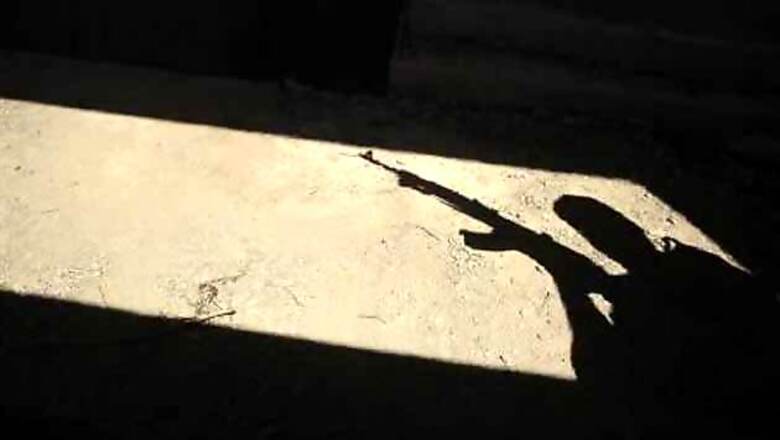
views
Gaza: Egypt's prime minister prepared to visit the Gaza Strip on Friday in an unprecedented display of solidarity with Hamas militants embroiled in a new escalation of conflict with Israel that risks spiralling into all-out war. Two rockets from Gaza crashed near Tel Aviv in the first such attack on Israel's commercial capital in 20 years. One fell into the Mediterranean Sea and the other in an uninhabited part of one of the Tel Aviv suburbs south of the city.
Two days of Israeli air strikes have killed 19 Palestinians, including seven militants and 12 civilians, among them six children and a pregnant woman. A Hamas rocket killed three Israelis in the town of Kiryat Malachi on Thursday morning. The latest upsurge in the long-running conflict came on Wednesday when Israel killed Hamas' military mastermind, Ahmed Al-Jaabari, in a precision air strike on his car. Israel then began shelling the coastal enclave from land, air and sea.
Israel says its offensive responded to increasing missile salvoes from Gaza. Its bombing has not yet reached the saturation level seen before it last invaded Gaza in 2008, but Israeli officials have said a ground assault remains possible. Israeli warplanes bombed targets in and around Gaza City, rattling tall buildings. In a hint of escalation, the spokesman for Israel's military said it had received the green light to call in up to 30,000 reserve troops.
Tel Aviv targeted
Air raid sirens sent residents running for shelter in Tel Aviv, a Mediterranean city that has not been hit by a rocket since the 1991 Gulf War, when it was targeted by Saddam Hussein's Iraq. The Tel Aviv metropolitan area is home to more than 3 million people, more than 40 percent of Israel's population. "This escalation will exact a price that the other side will have to pay," Israeli Defense Minister Ehud Barak said in a television broadcast shortly after the strike.
But an Israeli Cabinet statement on Wednesday spoke only of "improving" national security - acknowledgement that the Jewish state had no illusions about crushing the militants once and for all. Speaking at the same time in Gaza, Hamas leader Ismail Haniyeh urged Egypt to do more to help the Palestinians. "We call upon the brothers in Egypt to take the measures that will deter this enemy," the Hamas prime minister said.
Diplomatic efforts
U.N. diplomats said Secretary-General Ban Ki-moon would head to Israel and Egypt next week to try to mediate a ceasefire, although they gave no further details. The United States has asked countries that have contact with Hamas to urge the Islamist movement to stop its recent rocket attacks from Gaza, a White House adviser said. "We've urged those that have a degree of influence with Hamas, such as Turkey and Egypt and some of our European partners, to use that influence to urge Hamas to de-escalate," Ben Rhodes, deputy national security adviser, said in a conference call with reporters.
U.S. Defense Secretary Leon Panetta said in an interview with Voice of America: "I understand the reasons Israel is doing what they're doing. They've been the target of missiles coming in from Gaza." He added, "Our hope is that in striking back that they can minimize the civilian deaths that are likely to occur."
French President Francois Hollande began talks with Israeli Prime Minister Benjamin Netanyahu and other world leaders in an attempt to avert an escalation of violence in the Gaza Strip, Prime Minister Jean-Francois Ayrault said. British Prime Minister David Cameron spoke to Netanyahu too, saying Hamas bore the principal responsibility for the crisis.
Israel's sworn enemy Iran, which supports and arms Hamas, condemned the Israeli offensive as "organised terrorism." Lebanon's Iranian-backed Shi'ite Muslim militia Hezbollah, which has its own rockets aimed at the Jewish state, denounced strikes on Gaza as "criminal aggression," but held its fire. The Organisation of Islamic Cooperation condemned Israel's action.

















Comments
0 comment